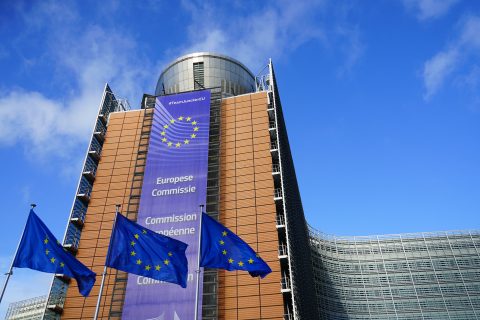Lithuanian Railways draw future strategy without Belarusian cargo

The EU and US sanctions imposed on Belarus are not binding for Lithuania to stop the rail transport of fertilisers from Belaruskalij, a Belarusian manufacturer. Nevertheless, Lithuanian Railways are already drawing up their future strategy, which excludes the transportation of such products, to avoid all the risks included.
Since last June, it was known that the EU and the US would impose sanctions on the transport of Belarusian goods starting from August. These sanctions would apply to new contracts after 25 June 2021.
Lithuanian Railways (LTG) had reacted to the news back in June, estimating huge financial losses due to the stop of Belarusian product transport. However, since the contract with Belaruskalij was signed in 2018, LTG can keep transporting fertilisers until its end in 2023.
No binding rules
As the Lithuanian Railways explain, “neither the current EU nor the US sanctions on Belarusian companies are sufficiently effective. They do not stop the transit of Belaruskalij fertilisers through Lithuania, as the EU sanctions are valid only for new agreements concluded after 25 June 2021. LTG signed a deal with Belaruskalij in 2018, and it is valid until the end of 2023. Meanwhile, US sanctions are legally binding only on U.S. individuals and entities”.
Still, LTG follows sanction policy
Although LTG would still be able to implement the transport contracts signed with Belaruskalij until the end of 2023, the company does not seem willing to do so. Specifically, the Lithuanian company will continue cooperating with the Belarusian manufacturer for the time being until it finds a legal way to break their contract.
“For the first time, Lithuania is facing the application of international sanctions for such large financial contracts. Therefore, additional time is needed to implement them. We have explored possible options and proposed solutions to achieve the objectives of the sanctions. We believe that by concentrating together, a legal way will be found to stop the transit of Belaruskalij fertilisers through Lithuania”, explained Mantas Bartuška, CEO of LTG.
Risk assessment the main driver
“At the board meetings, we assessed the situation in Belarus as having a significant impact on LTG’s operations”, said Kęstutis Šliužas, LTG’s chairman of the board. As a result, “taking into account the risks and planning the diversification of its activities”, LTG decided to exclude Belaruskalij cargo from its 2022 budget planning and future strategies.
In simple words, LTG could continue its collaboration with Belaruskalij until the end of 2023 without facing any backlash since the EU, and US policy does not pose binding obligations. However, recognising the potential issues that the continuation of such partnership could have, LTG is currently looking for a legal framework to stop the contract with the Belarusian company.
LTG had calculated the possible losses from stopping the transport of Belarusian fertilisers to approximately 24 million per year. The losses will still be there. However, the gradual suspension of fertiliser transport will have a milder impact on LTG while allowing it to keep its political alliances intact.
Also read:
You just read one of our premium articles free of charge
Want full access? Take advantage of our exclusive offer




